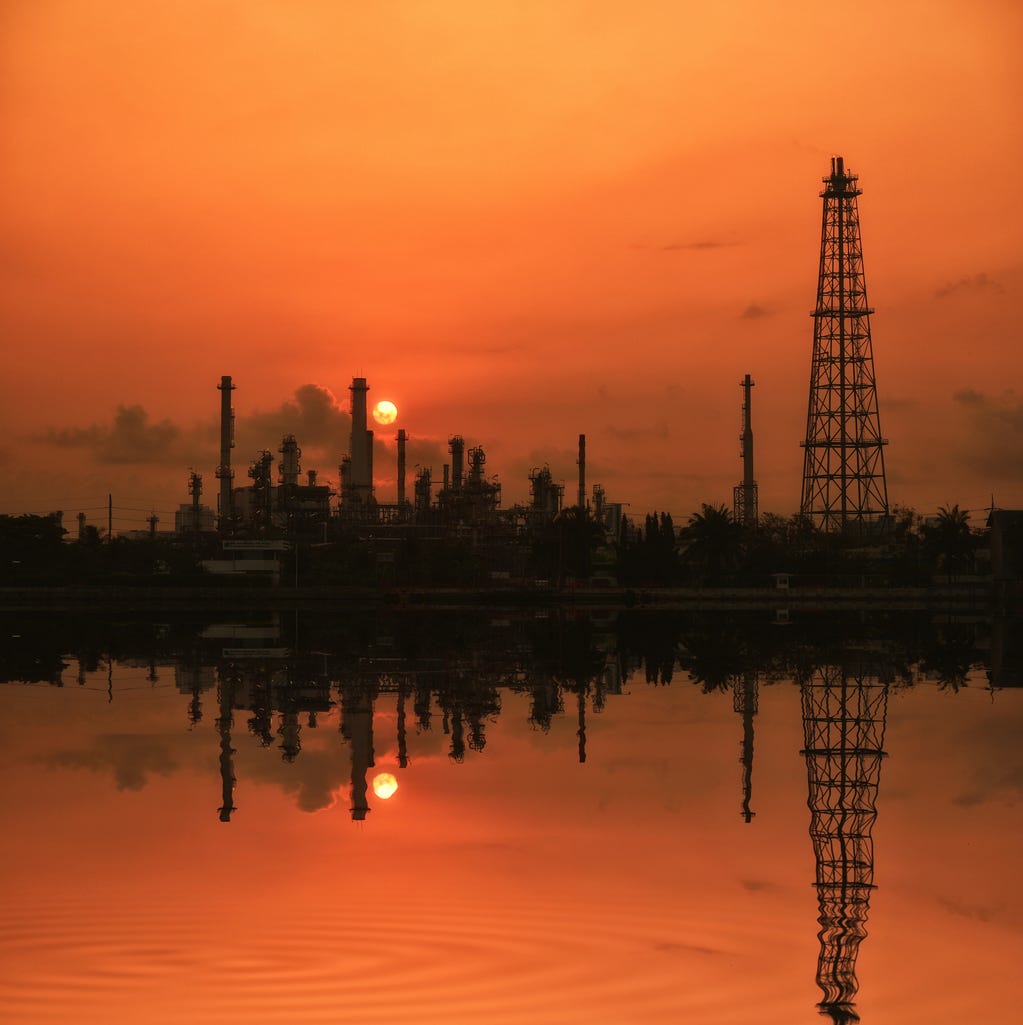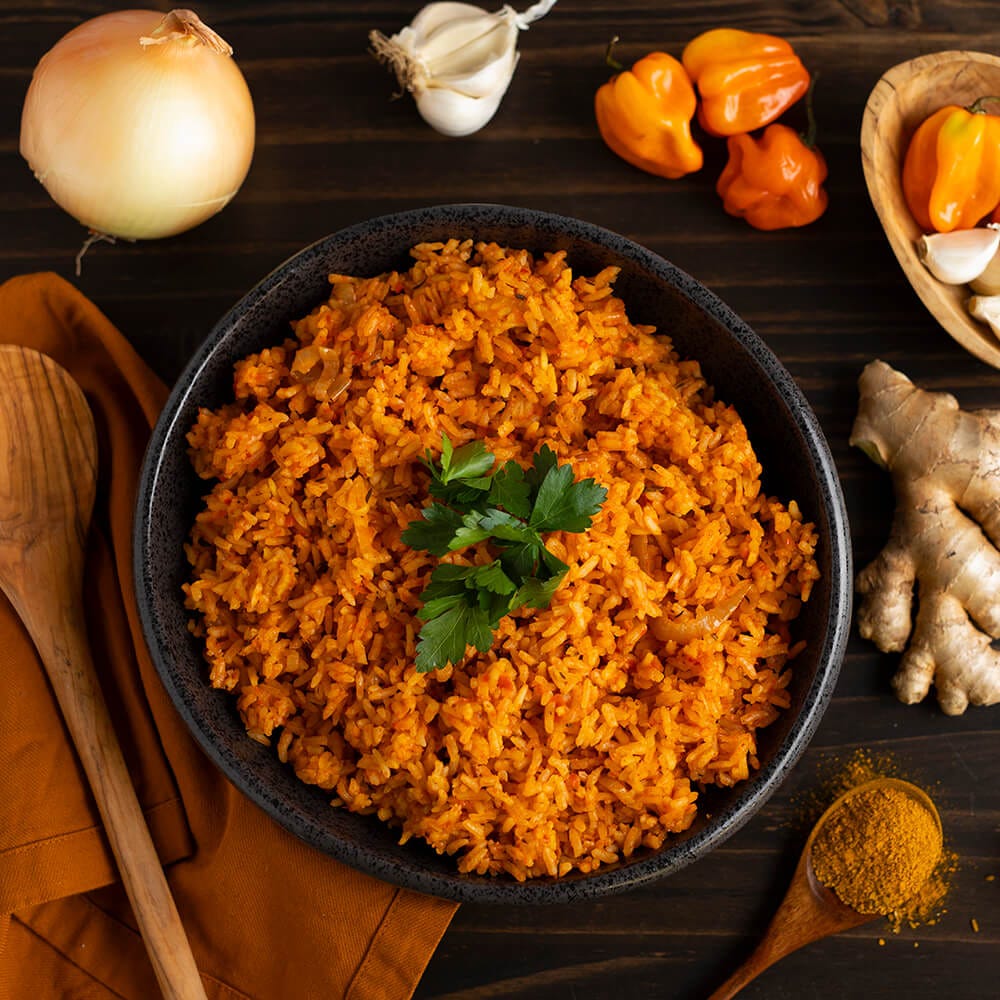Emerging Markets Daily - June 8
Big Oil Clout Wanes as Green Energy Rises, China Yangtze Economic Belt, Somaliland Vote, Solar Investors Bet on DRC, Japan Says Olympics Show Must Go On, and West Africa's 'Jollof Rice Wars'
The Top 5 Emerging Markets Stories from Global Media - June 8
Big Oil’s Clout Wanes As Governments Embrace Green Energy
Financial Times
“The handshake between then UK prime minister Tony Blair and Muammer Gaddafi in the desert in 2007 was not just the moment the Libyan leader cemented ties with an old foe. It was also a stark symbol of the role ‘Big Oil’ played in foreign policy.”
“BP sealed a significant exploration deal on the same trip, which capped its efforts to nudge the UK government to re-establish ties with the late North African dictator while opening access to huge hydrocarbon resources on Europe’s doorstep.”
“The struggle for fossil fuel resources has influenced geopolitics for decades, from generating conflict and shaping relations between the west and Middle East to today’s controversy over the Nordstream 2 pipeline from Russia to western Europe.”
“But now the relationship between western oil companies and their governments is undergoing a dramatic shift as governments commit to going green and fossil fuels fall out of favour — a move that gathered pace in April when US president Joe Biden convened an international climate summit to put pressure on countries to cut emissions. ‘There has always been the notion that geopolitical power writ large was tied to oil access,’ said Greg Priddy, a former energy analyst for the US government. ‘Even as late as the Obama administration in the US there was a sense that major producers overseas were strategically important. But all that is changing.’”
“The shift was hammered home last month when the International Energy Agency released a report arguing that if the world was to cut greenhouse gas emissions to net zero by 2050 — a prerequisite to meet the Paris climate accord goal of limiting global warming to 1.5C above pre-industrial levels — exploration for new oilfields must immediately stop.” David Shepherd reports.
Daniel Yergin on The New Map of Energy
ICYMI, Emerging World’s recent interview with globally renown energy scholar and chronicler Daniel Yergin dives into many of these issues noted above - “The New World Has a New Terrain.”
China's Yangtze Economic Belt: Xi’s Test Site to Go Green
Nikkei Asia
“The Chinese village of Yucun was once an impoverished community polluted by a nearby coal mine and cement plants. Now it is a tourist attraction thanks to the picturesque mountains and lakes that surround it -- and a poster town for some of President Xi Jinping's big plans.”
“…Yucun, in Zhejiang province, is nestled in the Yangtze River Delta -- a region that includes Shanghai and the provinces of Jiangsu and Anhui. The delta has a population of 235 million and accounts for about one-quarter of the country's economic output.”
“Beijing has chosen the region, about the size of Germany, to lead China's bid to go green and achieve economic self-sufficiency. The Communist Party wants to shift away from an export-oriented growth model, opening up new opportunities for China's domestic market of 1.4 billion people but, potentially, also making it harder for foreign investors to access key sectors.” CK Tan reports
Geopolitics: Somaliland Opposition Group Wins State’s First Vote In 16 Years
Bloomberg
“Opposition parties in the breakaway Somali region of Somaliland won control of parliament in last week’s elections, the National Electoral Commission said.”
“…The election was the first parliamentary vote in 16 years in Somaliland, which broke away from Somalia in the early 1990s after the eruption of a civil war. The region has been pushing for international recognition that would allow it to source funding from financial bodies such as the World Bank and the International Monetary Fund.”
“More than 1.2 million registered voters participated in the May 31 vote. None of the 13 women candidates who competed in the election won a seat.” Mohammed Omar Ahmed reports
Solar Investors Bet on DRC
African Business
“Two major solar energy projects have been announced in the Democratic Republic of Congo (DRC) in the space of a week as investors target one of Africa’s least electrified markets.”
“A consortium led by Gridworks, a UK government-backed developer and investor in African electricity, has signed a deal with the government of DRC to create a new company, Moyi Power, to build greenfield solar-powered distribution and generation infrastructure for half a million Congolese. The initial investment for the three sites will be at least $100m, funded with a mixture of equity from the consortium, debt provided by development finance institutions and capital grants from donors and DFIs.
“…Separately, Swedish-based investment platform Trine has partnered with Altech Group, a DRC-based firm, to accelerate investments in solar in the DRC and expand access to clean, reliable, and affordable energy for off-grid and poor-grid households. The new partnership totals €5m across multiple tranches. The first debt financing round will finance over 3,000 solar home systems and is expected to reach nearly 14,000 people with clean energy across 21 of DRC’s 26 provinces. Later debt financing rounds will follow in 2021.” David Thomas reports
Despite Danger and Cost, Japan Gambles on Successful Olympics
The Japan Times
“The Tokyo Olympic Games are reaching the point of no return.”
“With seven weeks until the opening ceremony, the Japanese government, the International Olympic Committee and major stakeholders are gambling political reputations and billions of dollars on staging a games that could lift global spirits and show how we could begin a return to normality. Or, in the worst case, create a superspreader event that savages Japan’s tottering economic recovery and blights the image of the world’s biggest sporting showcase.”
“…Here’s what’s at stake, whether the Olympics go ahead or are canceled at the last moment, from the reputation of Japan’s top political echelon to the investments of sponsors, governments and organizers, as well as the health of the city’s population and the dreams and well-being of the world’s greatest athletes.” Isabel Reynolds, Yuko Takeo, and Gerry Smith report
Featured Story - Jollof Wars: Who does West Africa’s Iconic Dish Best?
BBC
“With its seductive aroma, deep-red colour and spicy flavour, Jollof rice is the undisputed queen of West African kitchens. It's our beloved culinary treasure and a dish from our very heart and soul. But just whisper the word "Jollof" in West Africa and you could easily start a fiery feud of passion. That's because determining which West African nation makes Jollof best is an ongoing matter of local pride and contention.”
“Jollof rice is to West Africa what paella is to Spain, risotto to Italy, biriyani to India and fried rice to China. As a child growing up in Ghana, I gobbled Jollof down at family gatherings, birthdays, coming-of-age ceremonies, engagement parties and weddings. Enjoyed as a main meal, this rich, mouth-watering dish consists of rice cooked in a flavourful sauce of tomatoes, onions and aromatic spices. These base ingredients are often layered with ginger, garlic, thyme, grains of selim (a West African spice), tomato puree, curry powder and Scotch bonnet chillies, though the exact components and preparation differ from country to country; even from house to house.”
“…With the increase in Jollof's global popularity, Thiam believes that ‘We will see a growing interest for the dish and for African foods in general. Watch out for Jollof rice in your supermarket aisle.’” Patti Sloley reports


